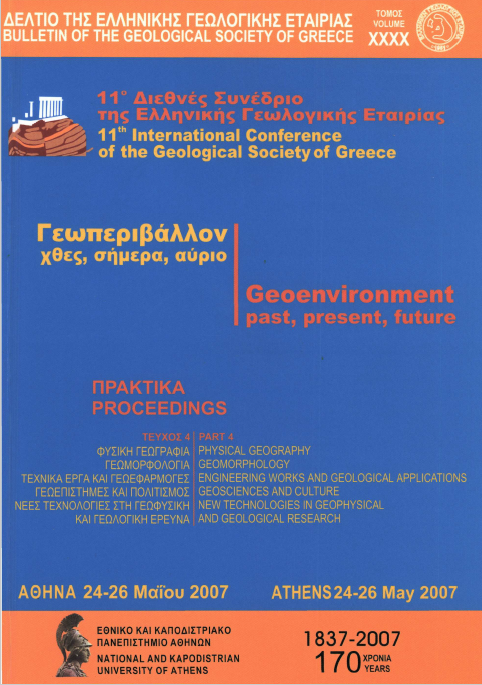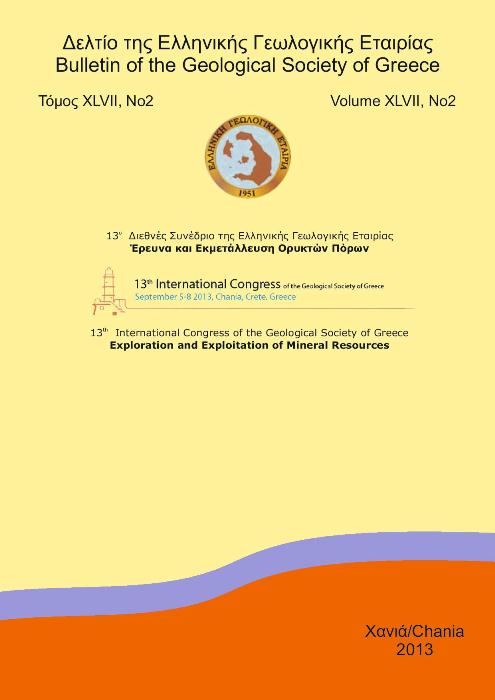Quality of soil and water in deltaic deposits of Louros and Arachthos rivers related to karstic rocks of the wider area
Résumé
The present study focuses on the connection between the existing karstic formations and the quality of soil and water in the River Delta area. The hydrological basins of Louros and Arachthos Rivers (NW Greece) are partially developed on karstic rocks. So the soil is enriched with CaC03 and there is a natural supply of Ca++, which originates mainly from the limestone and secondarily from gypsum formations. The value of the Cation Exchange Capacity (CEC) of soil is high and in the exchange sites Ca++ ions dominate and Mg++ secondarily. Delta water ofphreatic and confined aquifer contain high Ca++ ion concentrations. The fluctuation of HCO3 values in confined aquifer water is within normal levels. Ions of SO 4 ' that occur in water are derived from the karstic process of gypsum and anhydrite formations. The values ofNa+ and CT content in water are higher in the phreatic aquifer than in ground water. The water in the area of the River Delta is classified as Carbonic water, despite its proximity to the sea. Therefore, the quality of soil and water of the River Delta area is highly related to the karstic process of carbonate formations, mainly of calcareous and secondarily evaporate sediments
Article Details
- Comment citer
-
Papadopoulou, K., & Vriniotis, D. (2007). Quality of soil and water in deltaic deposits of Louros and Arachthos rivers related to karstic rocks of the wider area. Bulletin of the Geological Society of Greece, 40(4), 1599–1608. https://doi.org/10.12681/bgsg.17064
- Rubrique
- Physical Geography- Geomorphology

Ce travail est disponible sous licence Creative Commons Attribution - Pas d’Utilisation Commerciale 4.0 International.
Authors who publish with this journal agree to the following terms:
Authors retain copyright and grant the journal right of first publication with the work simultaneously licensed under a Creative Commons Attribution Non-Commercial License that allows others to share the work with an acknowledgement of the work's authorship and initial publication in this journal.
Authors are able to enter into separate, additional contractual arrangements for the non-exclusive distribution of the journal's published version of the work (e.g. post it to an institutional repository or publish it in a book), with an acknowledgement of its initial publication in this journal. Authors are permitted and encouraged to post their work online (preferably in institutional repositories or on their website) prior to and during the submission process, as it can lead to productive exchanges, as well as earlier and greater citation of published work.




